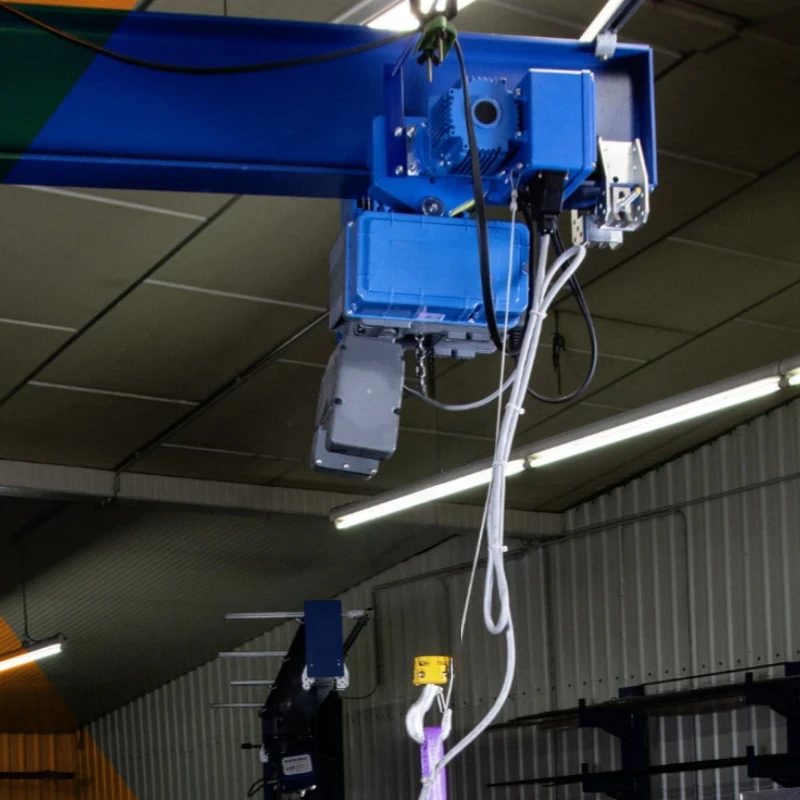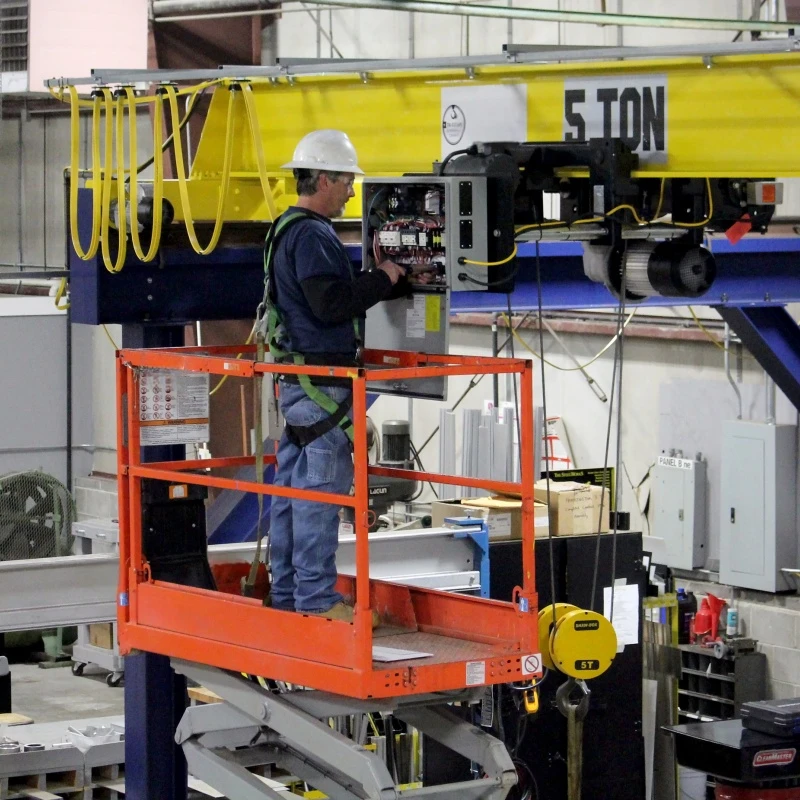You might wonder, are lever binders illegal in 2025? The answer is no, but things can get confusing. Some people say lever binders are banned, while others claim you can still use them.
Different states and companies have their own rules, which causes debate. If you want peace of mind and need certified load binders, check out Powerful Machinery for reliable options.
Key Takeaways
Lever binders are not illegal under federal law in 2025, but you must ensure they meet safety standards.
State laws vary; some states have stricter rules on lever binders. Always check local regulations before hauling.
Many companies prefer ratchet binders over lever binders for safety reasons. Follow shipper policies to avoid issues.
Stay compliant by keeping your load binders certified and maintaining proper documentation for inspections.
Regularly inspect your binders and choose equipment that meets or exceeds safety standards to protect your cargo.
Are Lever Binders Illegal in 2025?
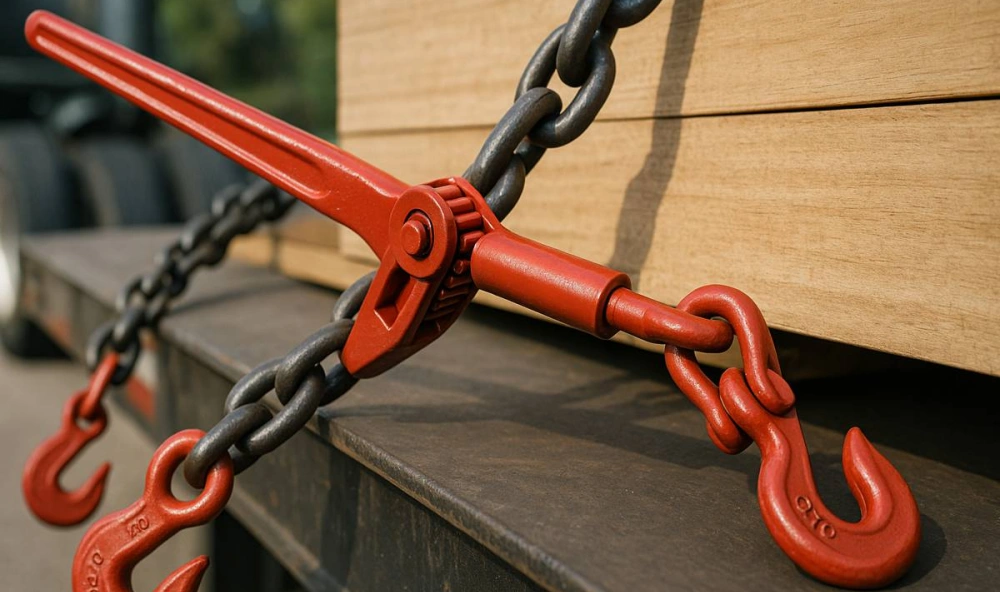
Federal Regulations
You might ask, are lever binders illegal under federal law in 2025? The answer is no. The Federal Motor Carrier Safety Administration (FMCSA) does not have an outright ban on lever binders.
Instead, the FMCSA sets strict rules for all cargo securement devices, including tie-down assemblies. These rules appear in the Federal Motor Carrier Safety Regulations, especially in sections like 49 CFR 393.102 and 393.104.
Here’s what you need to know about federal rules:
All cargo securement devices, including lever binders, must meet performance standards in § 393.102.
Tie-down assemblies must follow manufacturing standards for chains, webbing, and other materials.
The law requires you to use secure blocking, bracing, and tie-down components for equipment without parking brakes.
Synthetic straps must meet the Web Sling and Tie-Down Association’s standards and include a ratchet locking device.
Tie-down assemblies must meet minimum breaking strength and working load limits.
Federal law focuses on the strength and safety of your tie-down equipment, not the specific type. So, are lever binders illegal at the federal level? No, as long as your tie-down system meets the required standards.
State Laws
Now, let’s talk about state laws. This is where things can get tricky. Some states have their own rules about cargo securement and tie-down devices. While most states follow federal guidelines, a few have added restrictions.
For example, some states may discourage or even restrict the use of lever binders because of safety concerns. You might find that certain state inspectors prefer ratchet binders over lever binders, especially in places with stricter safety programs.
Here are a few things to watch for:
Some states have adopted extra rules for tie-down safety.
You could face extra scrutiny if you use lever binders in states with a history of accidents or injuries linked to these devices.
State inspectors may ask you to show that your tie-down system meets all safety standards.
So, are lever binders illegal in every state? No, but you need to check the rules in each state where you haul loads. Always make sure your tie-down equipment is up to date and meets both federal and state requirements.
Shipper Policies
Even if the law allows lever binders, some companies have their own rules. Many shippers and logistics providers set stricter policies than the government.
For example, companies in the oil and gas industry, like ConocoPhillips and Shell, do not allow lever binders (sometimes called snap binders) on their loads. Owner-operators at Lonestar also faced restrictions when hauling for Shell.
Here’s what you might see from shippers:
The company has policies that ban lever binders for safety reasons.
Requirements to use only ratchet-style tie-downs.
Extra training or inspections for drivers using tie-down equipment.
These company rules can be even stricter than state or federal law. If you want to keep working with top shippers, you need to follow their policies. This is one reason why so many drivers and companies switch to ratchet binders or other approved tie-down systems.
Note: Many drivers get confused about the rules. Some store employees say lever binders are not DOT-approved, but there is no federal ban. Others believe only ratchet binders are legal, but the law does not say this.
The confusion comes from mixed messages, company policies, and safety concerns. Always check the latest rules and talk to your shipper before you hit the road.
So, are lever binders illegal in 2025? Not everywhere, but you need to pay close attention to federal, state, and company rules. When in doubt, choose tie-down equipment that meets or exceeds all safety standards.
2025 Changes and Updates
New State Restrictions
You might notice more states tightening their rules on lever binders in 2025. Some states now require you to use only ratchet binders for certain loads. Others have started to ban lever binders on specific routes or for hazardous materials.
States like California and New York have led the way, setting stricter standards for cargo securement. If you haul across state lines, you need to check the latest rules before every trip. A quick call to your state’s Department of Transportation can save you from a costly mistake.
Here’s a quick look at what’s new:
State | Lever Binder Status | Notes |
|---|---|---|
California | Restricted | Only ratchet binders are allowed for hazmat |
New York | Restricted | Extra inspections on lever binders |
Texas | Allowed (with limits) | Must meet updated safety standards |
Enforcement Trends
Enforcement has stepped up in 2025. Inspectors now check your tie-down equipment more closely at weigh stations and roadside stops. You might see more random inspections, especially if you use lever binders. States with new restrictions have started to issue warnings and fines for non-compliance.
Some officers even carry checklists to make sure your equipment meets the latest standards. If you want to avoid trouble, keep your gear in top shape and carry proof that your binders meet all safety requirements.
Tip: Always keep your equipment certifications handy. Inspectors appreciate drivers who show they care about safety.
Industry Reactions
The industry has responded quickly to these changes. Many companies now train drivers to use ratchet binders instead of lever binders. Manufacturers have started to design new products that focus on both safety and ease of use. You might hear about the Bulldog Binder™—a new solution that’s getting a lot of attention.
“We’ve seen a real demand for ergonomic load restraint solutions that still meet strict safety standards. Bulldog Binder™ delivers on both fronts, and we’re excited to bring it to our customers nationwide,” confirmed Dean Nelson, Managing Director, Load Restraint Systems.
“Safety compliance is a non-negotiable in our industry. With Bulldog Binder™, we are not only making load restraint faster but significantly safer for every operator involved,” said Dean Nelson.
You can see that safety and compliance matter more than ever. Companies want to protect their drivers and avoid penalties. If you want to stay ahead, keep learning about new products and best practices.
Impact on Users
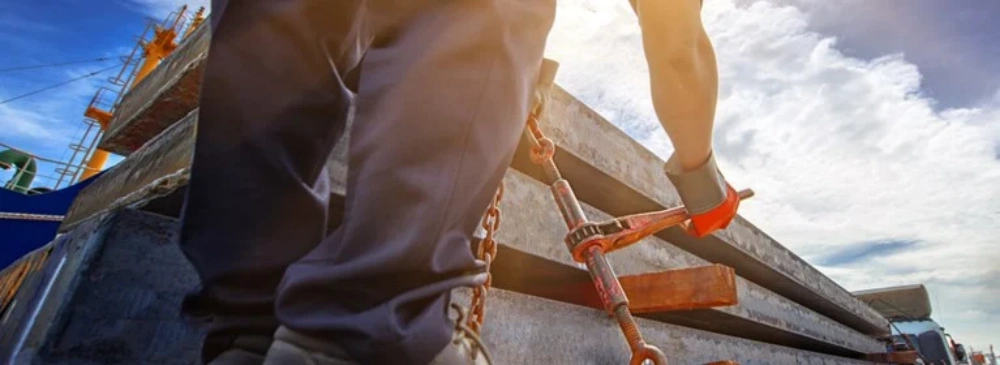
Compliance Steps
You want to keep your cargo secure and avoid trouble on the road. Staying compliant means you need to follow the latest rules for load binders and cargo securement. Start by checking both federal and state regulations before every trip.
Many states now require specific types of load binders, so you should always confirm what’s allowed where you’re headed. Training helps a lot. You can find online courses that teach you how to inspect your equipment, load heavy items safely, and follow the North American Cargo Securement Standard.
Here’s a quick look at some helpful training options:
Training Course | Description |
|---|---|
10 Load securement training courses for heavy equipment | Offers a thorough securement system and pre-drive inspection routine for safe transport. |
Load Securement for Heavy Equipment (US) | Adheres to the North American Cargo Securement Standard, includes emergency protocols. |
Safe Training Online | Covers regulations and best practices in the North American Cargo Securement Standard. |
Cargo Securement Training Online | Follows FMCSA safety standards, includes practice questions. |
Load Securement for Heavy Equipment (US) | Teaches efficient loading, unloading, and pre-driving inspections. |
Cargo Securement Flatbeds Online Training Course | Focuses on safe loading and driving practices for flatbed trucks. |
Proper load securement keeps you, your cargo, and everyone else safe. Failing to secure your load correctly can lead to serious risks.
Penalties and Risks
If you ignore the rules for load binders, you could face big fines. Inspectors check your equipment more often now, especially if you use lever binders in states with new restrictions. Penalties for violations can be steep. Take a look at the possible fines:
Violation Type | Maximum Penalty |
|---|---|
General and Regulatory Violations | $16,285 |
Willful and Repeat Violations | $162,851 |
Serious Violations | $25,000 |
Minimum Penalty for Willful Violations | $11,632 |
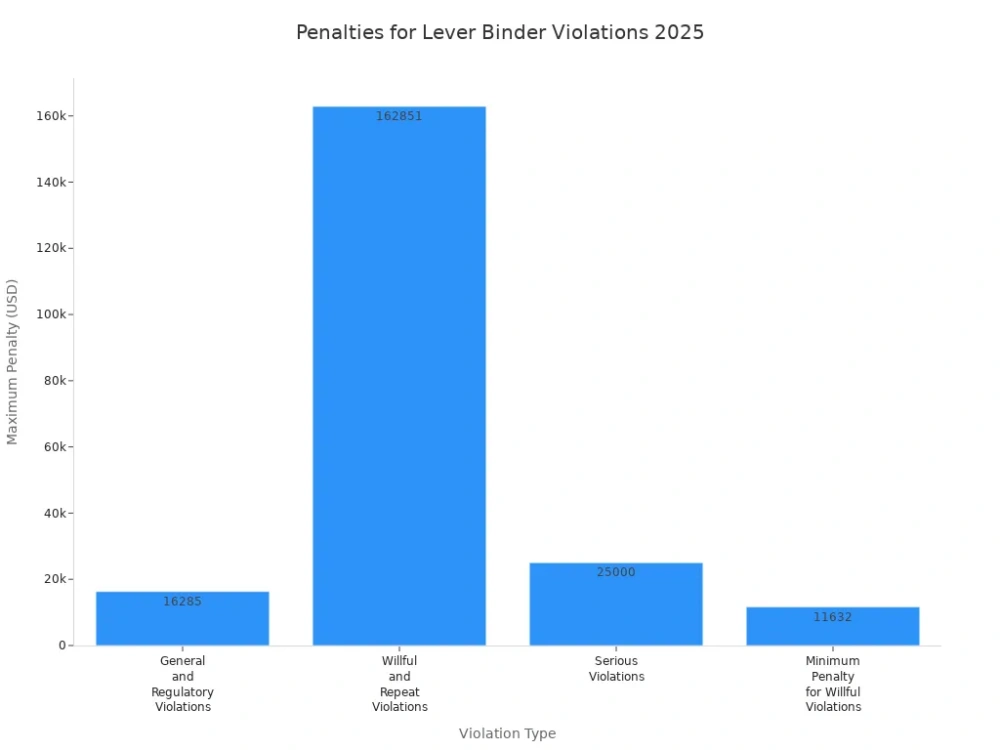
You don’t want to risk your job or your company’s reputation. Using certified load binders helps you avoid these penalties and keeps your business running smoothly.
Role of Powerful Machinery
You need reliable equipment to meet safety standards and pass inspections. Powerful Machinery offers load binders that comply with OSHA, ANSI, ISO, and CE certifications. Every batch comes with a material test certificate and load test documentation, so you know your gear meets strict requirements.
This means you can trust your equipment to keep your cargo secure and your team safe. Powerful Machinery focuses on safety, quality, and compliance. Their products help you avoid delays, reduce insurance costs, and protect your workers from accidents.
When you choose Powerful Machinery, you get more than just strong load binders—you get peace of mind.
Tip: Always use certified load binders and keep your documentation handy. Inspectors appreciate drivers who show they care about safety and compliance.
Chain Binders and Alternatives
Ratchet vs Lever Binders
When you look at chain binders, you usually see two main types: ratchet and lever. Both help you secure heavy loads, but they work a bit differently. Ratchet binders use a gear and handle system.
You turn the handle back and forth to tighten the chain. Lever binders, sometimes called snap binders, use a single lever to pull the chain tight in one quick motion.
Here’s a quick comparison:
Type of Binder | Safety Features | Compliance Requirements |
|---|---|---|
Ratchet Binder | High-quality materials and certified standards | Must meet stringent guidelines for load securing |
Ensures secure fastening to prevent accidents | Influenced by regulatory standards for load securing |
Ratchet binders often feel safer because you control the tension step by step. Lever binders can release energy quickly, so you need to stay alert when using them. Both types of chain binders must meet safety and compliance rules, but many companies now prefer ratchet styles for extra peace of mind.
Powerful Machinery Load Binders
If you want reliable chain binders, you should check out Powerful Machinery’s range. These binders come in both ratchet and manual load binder styles. Drivers who use them say they feel more energized during the week.
Many report less pain in their shoulders, elbows, and wrists. Some even save enough time to skip ahead in line at steel coil yards.
Powerful Machinery tests every chain binder to meet strict international standards. You get a product that’s strong, safe, and ready for tough jobs. Each binder comes with certification, so you can show inspectors you’re using approved equipment.
Tip: Choose chain binders from a trusted brand to avoid delays and keep your cargo secure.
Choosing the Right Binder
Picking the right chain binder matters for your safety and your business. Always check the working load limit (WLL) and make sure your binder matches your chain size. Inspect your chain binders before each use. Never use a damaged or defective binder.
Hand-tighten your manual load binder to the correct WLL and avoid using extra bars for leverage. Secure each binder so it won’t loosen during your trip. Stand clear when you release the binder to prevent injury. Clean and lubricate moving parts often.
Here’s a table to help you remember what to check:
Safety Consideration | Description |
|---|---|
Working Load Limit (WLL) | Select a binder that meets the WLL for your load. |
Equipment Inspection | Check for damage before every use. |
Proper Use | Hand-tighten only; don’t use extenders. |
Secure Operation | Make sure the binder stays tight during transit. |
Caution on Release | Stand clear when releasing to avoid injury. |
Regular Maintenance | Clean and lubricate moving parts. |
Regulatory Compliance | Follow all federal, state, and local rules. |
Industry experts also recommend you look at breaking load analysis and test results. This helps you know your chain binders will hold up under stress. When you choose a binder, think about the manufacturer’s reputation, customer support, and commitment to safety.
Powerful Machinery stands out for its certified products and strong customer service.
Conclusion
Lever binders are not illegal everywhere in 2025, but you need to stay alert. Always check both federal and state rules before you hit the road. Using certified products, like those from Powerful Machinery, helps you avoid trouble and keeps your cargo safe.
Tip: For the latest updates, talk to your local DOT and trusted suppliers. Stay informed and drive with confidence!
FAQ
Are lever binders banned everywhere in 2025?
No, you can still use lever binders in most places. Some states and companies have new restrictions. Always check the rules where you plan to haul. When in doubt, ask your shipper or local DOT.
What makes ratchet binders safer than lever binders?
Ratchet binders let you tighten chains slowly and with more control. You reduce the risk of sudden release or injury. Many companies now prefer ratchet binders for this reason.
How do I know if my load binder is compliant?
Look for certifications like OSHA, ANSI, ISO, or CE. Powerful Machinery provides certified load binders with test documentation. Keep your paperwork handy for inspections.
Can I use Powerful Machinery load binders in any state?
Yes, you can use Powerful Machinery load binders nationwide. They meet strict international and U.S. standards. Just make sure you follow local rules for the type of binder you choose.
What should I do if a shipper bans lever binders?
Switch to a ratchet binder or another approved device. Powerful Machinery offers several options that meet company and legal requirements. > Tip: Always ask about shipper policies before you load up.

